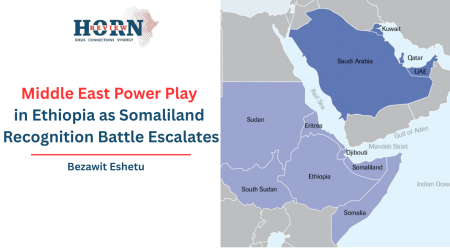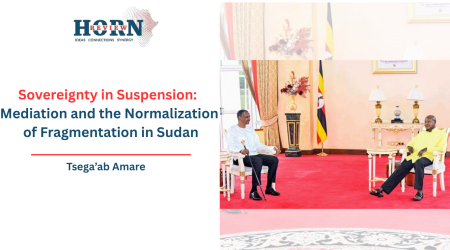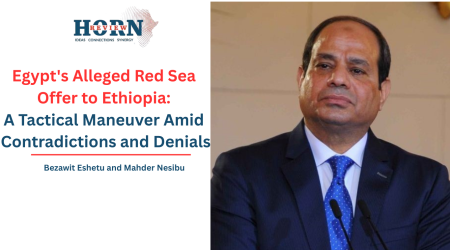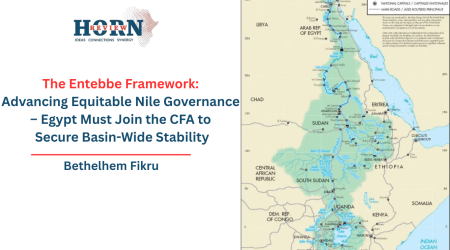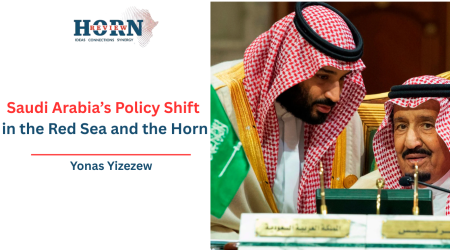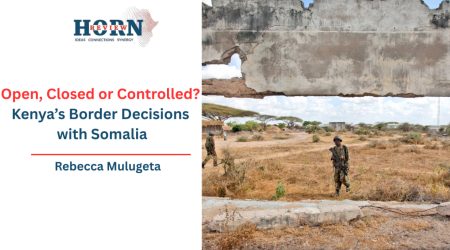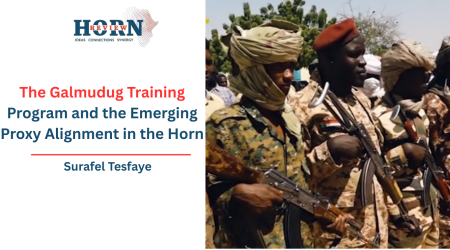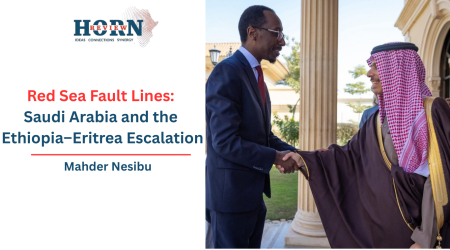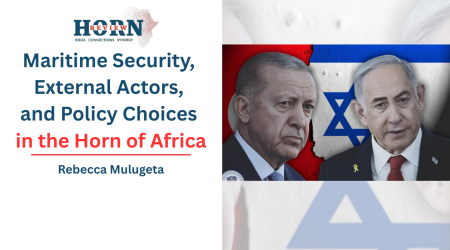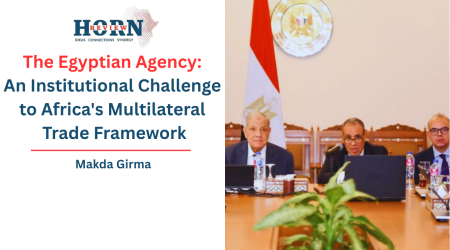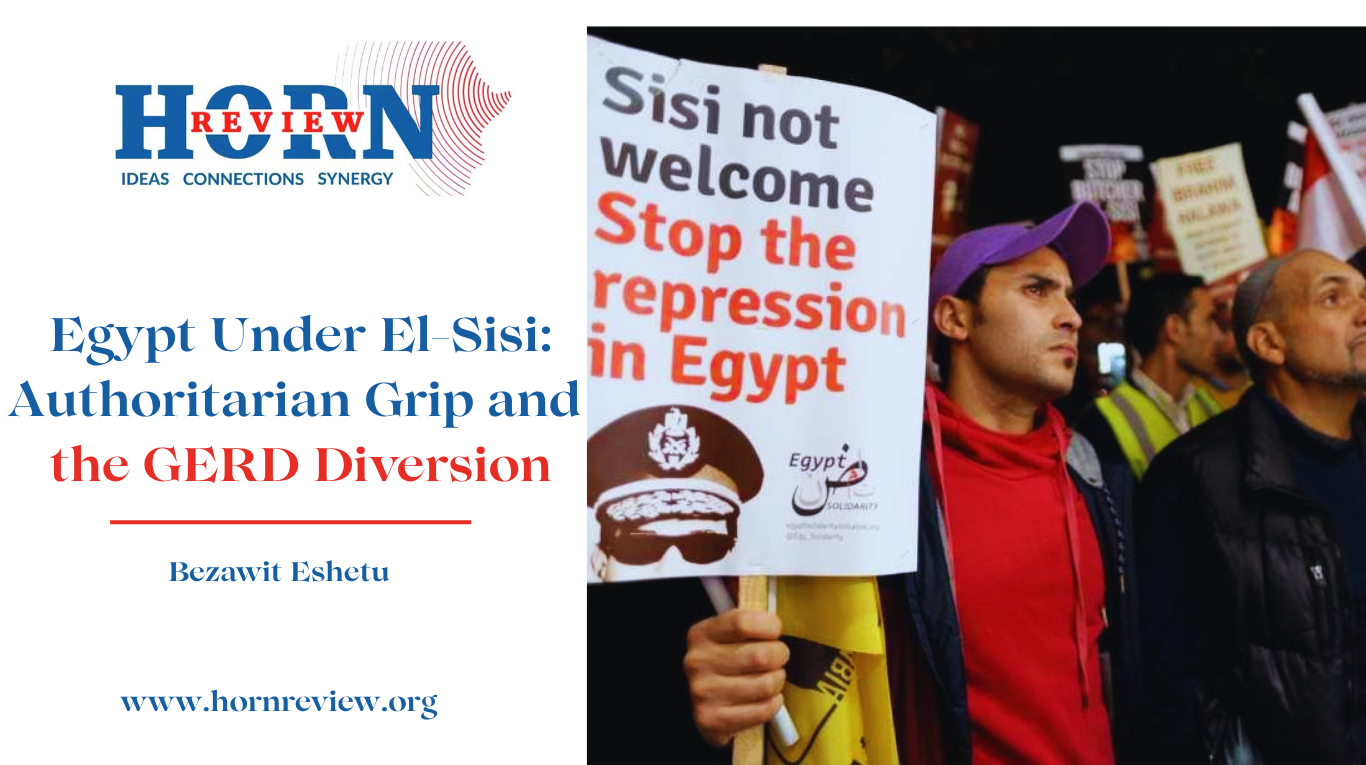
5
Nov
Egypt Under El-Sisi: Authoritarian Grip and the GERD Diversion
The controversy over the Grand Ethiopian Renaissance Dam (GERD) has been transformed from a technical negotiation into a political instrument. Under President Abdel Fattah El-Sisi, the GERD functions as a powerful diversion: by presenting the dispute as an existential crisis, the regime suppresses domestic grievances and narrows permissible debate. In doing so, it shields itself from scrutiny even as economic and civic pressures deepen.
Since 2013, Sisi has solidified authority through a securitized model of governance. His earlier role in the military leadership that took control after the 2011 uprising connects him to the forces that ousted Hosni Mubarak; however, he now embodies the very authoritarian order he once opposed. Initially presented as a stabilizing figure during the 2012–13 crisis, Sisi’s removal of Mohamed Morsi in July 2013 marked a rapid reshaping of formal authority, which further entrenched his power.
This trajectory raises questions about Sisi’s public insistence that the armed forces sought only to restore justice, a claim that starkly contradicts his subsequent actions in leading the coup and running for president. Observers have noted that military intervention casts a long shadow over the revolution’s aspirations for civilian democracy. For many Egyptians, these changes have manifested in immediate and tangible limits on movement, speech, and association. Consequently, a political order has emerged where security claims and national myth overshadow democratic contestation.
The durability of Sisi’s regime can be attributed to institutional capture, where a mix of legal pressure, informal coercion, and elite cooptation reinforces its power. High-profile trials serve as a tool for public discipline, while security forces enjoy steady material rewards and business interests that bind them to the status quo. The dominance of military-linked companies in procurement and construction only cements this relationship. Meanwhile, public gestures toward particular communities, such as promises of protection for Coptic Christians, broaden elite coalitions but reduce protection to a transactional relationship. To ordinary citizens, this visible order obscures the poor state of public services and management failures, making symbolic control and staged politics substitutes for genuine policy solutions.
As political space narrows, opposition is fragmented and civic life is weakened. Following the 2013 exclusion of the Muslim Brotherhood and similar organized actors from formal politics, subsequent laws have severely restricted assembly, association, and foreign funding for civil society. Arrests, candidacy bans, and legal hurdles have effectively emptied electoral competition. What remains is a managed pluralism—a controlled political opening devoid of real accountability. Many citizens, once hopeful that elections could serve as a tool for change, now approach them with skepticism or disengagement.
The human costs of this political climate are tangible: activists and journalists feel constant uncertainty, parents worry about their children’s job prospects, and migrants face painful separations and lost opportunities. This situation has accelerated brain drain and eroded civic and technical capacity. With civic energy depleted and economic pressures mounting, many citizens become more receptive to narratives that promise order and dignity.
Public attitudes in Egypt are layered and complex. Some offer conditional support for strong leadership due to the predictability and infrastructure it brings, while others tolerate the regime out of fear of instability or reprisals. Beneath both sentiments lies a quiet anger over unmet expectations, including persistent youth unemployment and rising living costs following subsidy and currency changes. This mix of conditional support and private frustration renders aggressive foreign-policy rhetoric politically advantageous, allowing the government to redirect attention from its failures to a narrative of national defense.
However, measuring genuine public sentiment is challenging, as expression is filtered through the lenses of repression and social pressure. Official surveys often report high approval ratings for Sisi, yet indirect methods and anecdotal evidence suggest widespread preference falsification and self-censorship. Many citizens publicly endorse stability while privately prioritizing income, services, and security. This gap undermines public opinion as a corrective force, enhancing the effectiveness of performative politics.
In stark contrast, the diaspora and exiled opposition present a sharper counterpoint to the regime’s narrative. Abroad, critics document abuses and strive to shape international opinion. The state’s efforts to intimidate or manage dissidents overseas have only hardened diasporic activism, amplifying dissent on the international stage. However, this activism has limited reach within Egypt’s tightly policed domestic sphere. While diasporic critiques seldom spark change at home, they continue to influence foreign opinion and fuel cross-border advocacy.
Economic stress further complicates elite choices and constrains policy options. Public debt and external liabilities have surged, accompanied by rising inflation. Fiscal tightening and loan-backed megaprojects prioritize ambitious investments over household welfare. Subsidy reforms and increased fuel prices have exacerbated living costs, sharpening grievances among ordinary citizens. While these moves are often defended as macroeconomic necessities, they are perceived by many as social retrenchment.
The military’s 2013 removal of Morsi was partly justified by economic grievances such as unemployment and fuel shortages, a narrative that helped legitimize their intervention. Ironically, similar policy choices now define Sisi’s administration: subsidy cuts, a focus on monumental investments, and enduring youth unemployment. For young graduates, this results in delayed opportunities and deepening cynicism. The repetition of this cycle drives the regime to employ symbolic diversions, turning external issues into moral tests—an effective political tool.
The GERD dispute exemplifies how external conflicts can be politicized for domestic purposes. Leadership frames the issue as a security threat, tapping into legitimate anxieties about water and food. Critics are labeled as unpatriotic, an important tactic that channels legitimate grievances into a narrative focused on an external enemy rather than prompting necessary discussions about domestic reform or regional cooperation. By transforming a technical water-management negotiation into a moral imperative, the regime narrows acceptable dissent and raises the political cost of compromise.
This approach effectively turns technical trade-offs into binary moral choices: defend the nation or face accusations of disloyalty. When legitimacy is derived more from projecting strength than from ensuring reliable water management or economic security, foreign policy becomes an outlet for political pressure rather than a means of problem-solving. The political gains from dramatic posturing often outweigh the complex and uncertain benefits of negotiation.
Seen through that lens, Addis Ababa’s posture is deliberate strategic signaling. Ethiopia prioritizes institutionalized, technocratic diplomacy and prefers African Union mechanisms and technical protocols over rhetorical confrontation. By commencing operations in 2025, Addis converted symbolic claims into operational sovereignty while keeping negotiations open to safeguards and verification. That approach seeks to neutralize spectacle by changing the terms of engagement toward verifiable cooperation.
Cairo’s approach has often avoided those technical terms, trading engagement for confrontation and performative nationalism. That makes the dispute look like a security threat, pushes leaders away from compromise, and makes practical fixes politically costly. As a result, Ethiopia’s technical proposals struggle to get a hearing because the politics reward dramatic displays over problem-solving.
Sisi has used the Nile as a political shield, turning legitimate public anxiety into a protective wall for his rule. By presenting the GERD as an existential threat, he redirects attention from faltering economic promises and the domestic costs of authoritarian consolidation. Performative nationalism asks citizens to trade economic grievance for moral certainty and converts private frustration into public vigilance on the regime’s behalf. The consequence is stark: political accountability is deferred, reform is sidelined and critique is recast as disloyalty. Popular sentiment, in effect, becomes a resource the regime manages to preserve its survival rather than an independent check on power.
By Bezawit Eshetu, Researcher, Horn Review

